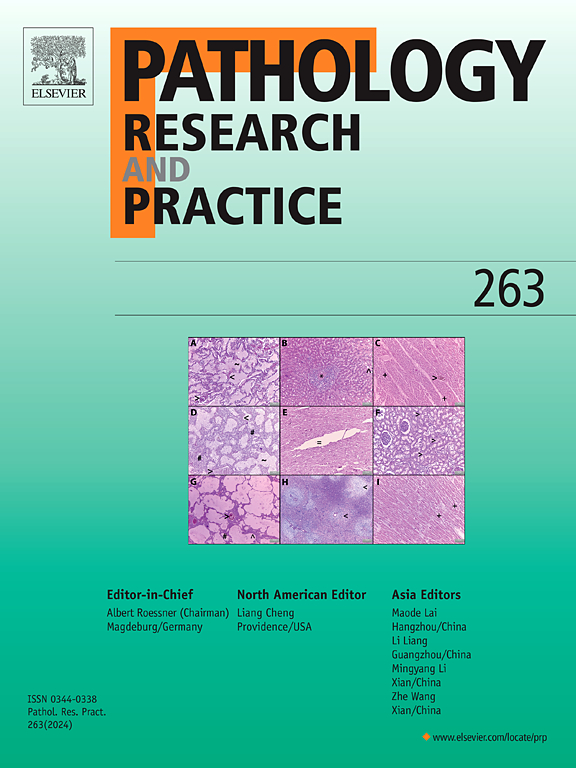A review of the progress and challenges of developing dendritic-based vaccines against hepatitis B virus (HBV)
IF 2.9
4区 医学
Q2 PATHOLOGY
引用次数: 0
Abstract
Hepatitis B virus (HBV) infections that last a long time are a significant public health problem worldwide. About 254 million people around the world are chronically sick with HBV. Each year, 1.2 million new cases occur, and in 2022, 1.1 million people will die from the disease. So, it has been essential to work on finding ways to treat and avoid HBV. The process of therapeutic vaccination involves giving people a non-infectious form of a virus to start or improve immune reactions specific to HBV. This helps keep HBV infections under control. Dendritic cells (DCs) play a significant part in beginning the adaptive immune response, which could decide how well an HBV infection is treated. DC-based treatment has been looked into for people with chronic HBV (CHB) infection and has shown some sound effects. Vaccines for CHB that use DCs boost antiviral immunity by improving T cells and breaking the immune system's resistance against HBV. In these vaccines, DCs are loaded with HBV antigens (like HBsAg, HBcAg, or peptides) outside of the body and then put back into the patient to make the immune system work better. In conclusion, this DC treatment is a biological therapy method with a good chance of being used. This study examined the different DC-based medicines that can treat and prevent HBV. Finally, we've talked about clinical studies, the current problems, how to fix them, and the future of this vaccine for treating and preventing HBV.
乙型肝炎病毒树突状疫苗的研究进展与挑战
乙型肝炎病毒(HBV)感染长期存在,是世界范围内一个重大的公共卫生问题。全世界约有2.54亿人患有慢性乙型肝炎病毒。每年有120万新病例发生,到2022年,将有110万人死于这种疾病。因此,寻找治疗和避免HBV的方法至关重要。治疗性疫苗接种的过程包括给人一种非传染性的病毒,以启动或改善针对乙肝病毒的免疫反应。这有助于控制HBV感染。树突状细胞(dc)在开始适应性免疫反应中起着重要作用,这可以决定HBV感染的治疗效果。以dc为基础的治疗已被研究用于慢性乙型肝炎病毒(CHB)感染,并显示出一些良好的效果。使用dc的CHB疫苗通过改善T细胞和打破免疫系统对HBV的抵抗力来增强抗病毒免疫。在这些疫苗中,dc在体外装载HBV抗原(如HBsAg、HBcAg或多肽),然后放回患者体内,使免疫系统更好地工作。总之,这种DC治疗是一种很有可能被使用的生物治疗方法。这项研究检查了可以治疗和预防HBV的不同dc药物。最后,我们讨论了临床研究,当前的问题,如何解决它们,以及这种疫苗治疗和预防HBV的未来。
本文章由计算机程序翻译,如有差异,请以英文原文为准。
求助全文
约1分钟内获得全文
求助全文
来源期刊
CiteScore
5.00
自引率
3.60%
发文量
405
审稿时长
24 days
期刊介绍:
Pathology, Research and Practice provides accessible coverage of the most recent developments across the entire field of pathology: Reviews focus on recent progress in pathology, while Comments look at interesting current problems and at hypotheses for future developments in pathology. Original Papers present novel findings on all aspects of general, anatomic and molecular pathology. Rapid Communications inform readers on preliminary findings that may be relevant for further studies and need to be communicated quickly. Teaching Cases look at new aspects or special diagnostic problems of diseases and at case reports relevant for the pathologist''s practice.

 求助内容:
求助内容: 应助结果提醒方式:
应助结果提醒方式:


